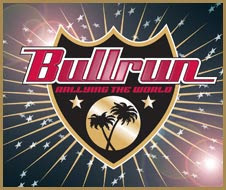 Today is Memorial Day, the day set aside by the US after the Civil War to honor military personnel who have lost their lives in service to their country. Memorial Day is particularly poignant for Americans this year, with so many of our soldiers making the ultimate sacrifice.
Today is Memorial Day, the day set aside by the US after the Civil War to honor military personnel who have lost their lives in service to their country. Memorial Day is particularly poignant for Americans this year, with so many of our soldiers making the ultimate sacrifice.
As the daughter of an Army officer, I have a particular regard for soldiers. Some of the heroes of my books are soldiers, and in all my books the war with Napoleon is mentioned. I love my Regency soldiers. I secretly yearn to write some Napoleonic war romances, sort of like Bernard Cornwell’s Sharpe series, except love stories. I own a brazillion books on the Napoleonic war and its soldiers. It seemed fitting today to tell you about one of them: Intelligence Officer in the Peninsula Letters and Diaries of Major The Honorable Edward Charles Cocks 1786-1812, Julia V. Page, editor (1986, Spellmount Ltd)
Major Cocks served in various capacities in the Peninsular war. He was attached to the regular Spanish army for a time and also with the 16th Light Dragoons. He worked as an intelligence officer behind enemy lines, performed special missions for Wellington, and was a field officer commanding soldiers. His family wanted him in Parliament, but Charles, as he was called, loved soldiering more than anything else. He was the consummate professional soldier, very much in his element in the war in Spain.
In a letter to his uncle, Charles wrote:
Few regard soldiers in their true light, that is as a body of men giving up many individual pleasures and comforts for a general national advantage, coupled certainly with the hope of personal fame and at the same time preserving more individual independence than any class of men….Men unused to war and ignorant of its ways regard slodiers as pernicious characters because they always figure them as intent on the desruction of their enemy, but a soldier only meets his foe now and then and he is every day engaged in reciprocal offices of kindness with his comrades….for my part I think there is much less ferocity in putting your foe to death when you see him aiming at your life, than in coolly rejoicing in your cabinet at home at successes purchased by the blood of thousands–Your dutiful and affectionate nephew, E. Charles Cocks
On October 8, 1812, Charles was acting as a field officer in the seige of Burgos. In the hours before dawn he led his men up a slope to regain the outer wall. When he reached the top, a French soldier fired straight at him. The ball passed through his chest, piercing the artery above his heart. He died instantly.
That morning Wellington strode into Ponsonby’s office, paced to and fro without speaking for several minutes. He started back toward the door, saying only, “Cocks is dead” before he walked out. Later Wellington wrote, “He (Cocks) is on every ground the greatest loss we have yet sustained.” When Wellington stood at his graveside, ashen-faced and remote, none of his officers dared speak to him.
Admiration for valor, gratitude for sacrifice, grief at loss. Today is not very different than 1812.
 My father, Daniel J. Gaston, pictured here circa 1940s, was not called upon to make a soldier’s ultimate sacrifice. He reached an advanced age, long enough to see his daughters well-situated and happy, and his grandchildren grown. He died peacefully in 2001 before my writing career took off.
My father, Daniel J. Gaston, pictured here circa 1940s, was not called upon to make a soldier’s ultimate sacrifice. He reached an advanced age, long enough to see his daughters well-situated and happy, and his grandchildren grown. He died peacefully in 2001 before my writing career took off.
Do you have a soldier, real or fictional, who deserves tribute?
Would you like more war romances?
Can you think of any Napoleonic war romances (Heyer’s An Infamous Army comes to mind and one of Mary Jo Putney’s, featuring a blood transfusion–title fails me)?
To all our soldiers……Thanks
Diane








